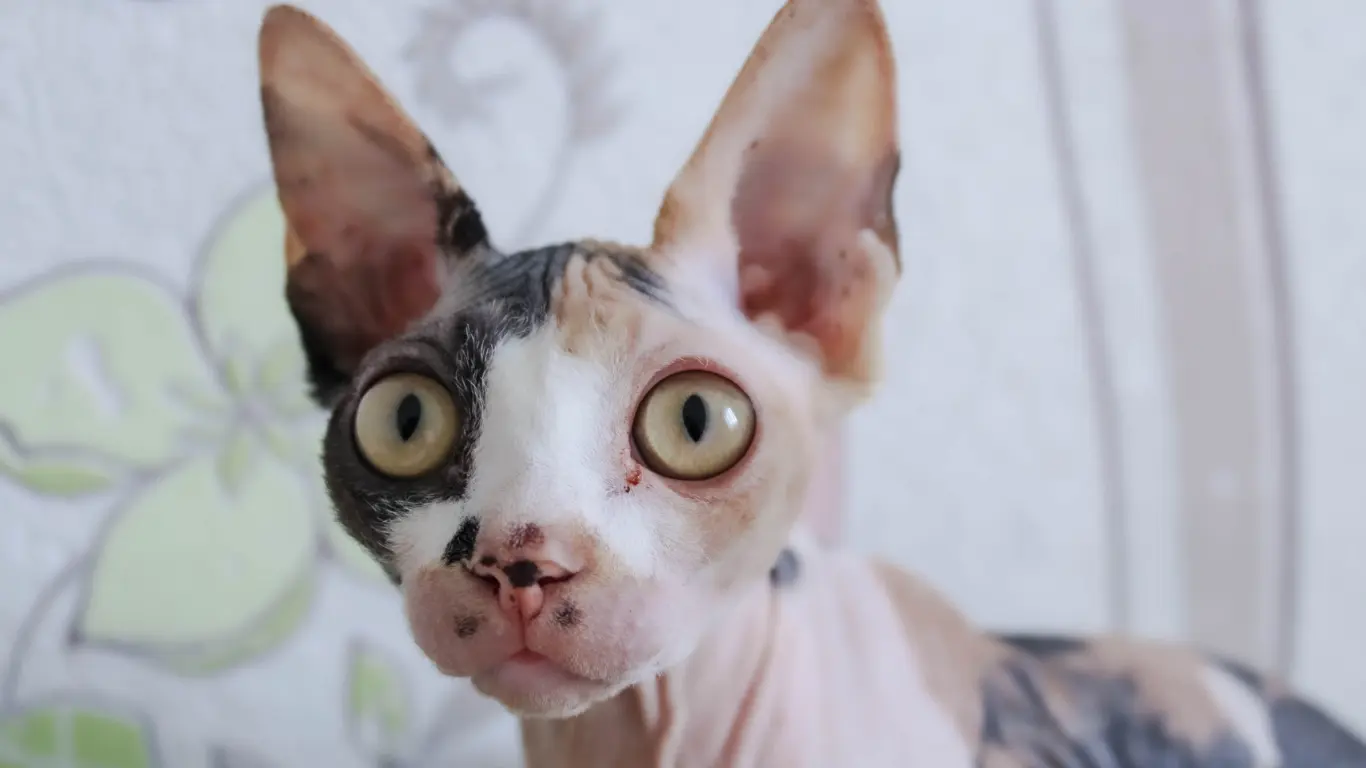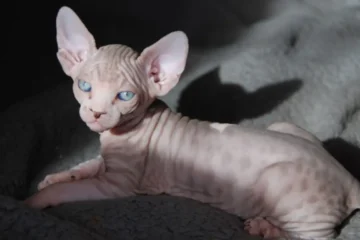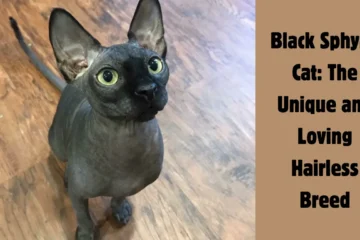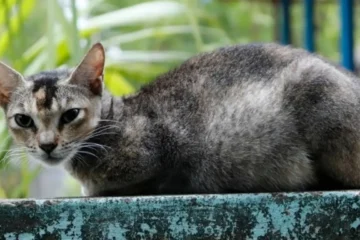Understanding the Sphynx Cat: An Iconic Breed
Sphynx cat are one of the most distinctive and fascinating breeds in the feline world. Known for their hairless bodies, large ears, and affectionate nature, they are a breed that captures attention and curiosity. But there’s so much more to these cats than their appearance. This comprehensive guide will explore everything you need to know about Sphynx cats, from their origins to their care requirements, personality traits, and more. Whether you’re considering adopting a Sphynx or simply want to learn more about this unique breed, this article will provide you with all the information you need.
The Origins of the Sphynx Cat
The Sphynx cat may seem like a modern invention, but its history of the Sphynx cat dates back to the 1960s in Canada. A genetic mutation led to the birth of a hairless kitten named Prune, who became the foundation of the Sphynx breed. Breeders quickly recognized the potential of this unique cat and began a breeding program to establish the Sphynx as a recognized breed. Over the years, careful breeding practices have ensured the development of a healthy, stable gene pool for these cats.
Evolution and Recognition by Cat Associations
As the Sphynx cat gained popularity, it was eventually recognized by major cat registries such as the Cat Fanciers’ Association (CFA) and The International Cat Association (TICA). Today, the Sphynx is celebrated for its unique appearance and loving nature, making it a favorite among cat enthusiasts worldwide.
Unique Physical Traits of the Sphynx Cat
The Sphynx cat’s most notable feature is its lack of fur, which results from a natural genetic mutation. While some may see this as a disadvantage, Sphynx owners know that this trait only adds to the breed’s charm.
The Hairless Coat: A Defining Feature
Despite being hairless, Sphynx cats are not entirely without hair. They often have a fine layer of peach-fuzz-like fur that gives their skin a soft, suede-like feel. This lack of fur means they are more susceptible to temperature changes, so they often seek out warm spots in the house, whether it’s a sunny windowsill or under the covers in bed.
Eye Colors, Skin Patterns, and Body Structure
Hairless cats come in a variety of skin tones and patterns, including solid colors, tabby, and even bicolor. Their eyes are large and expressive, ranging in color from blue to green, gold, or even odd-eyed (two different colors). Their bodies are muscular and well-defined, with a characteristic pot-bellied appearance that adds to their unique look.
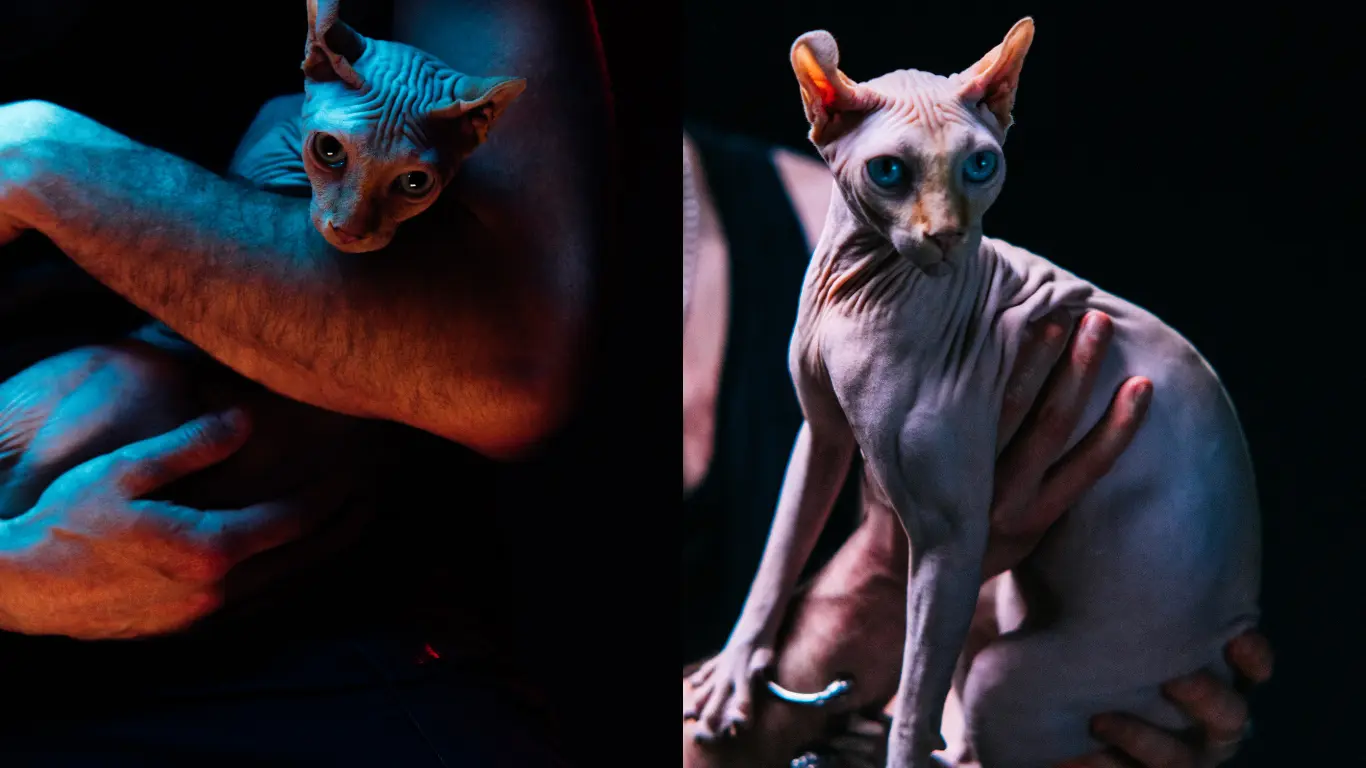
Understanding the Sphynx Cat’s Personality
While their appearance might be striking, it’s the Sphynx cat’s personality that truly wins people over. These cats are known for their affectionate, social nature, making them excellent companions.
Affectionate and Social Nature
Hairless cats are often described as “dog-like” in their loyalty and attachment to their owners. They thrive on human interaction and often follow their owners from room to room. Unlike some other breeds that may be more aloof, Sphynx are genuinely interested in being part of the family, making them great pets for households where they can get plenty of attention.
Intelligence and Playfulness
In addition to being affectionate, Sphynx breed are highly intelligent and playful. They enjoy interactive toys, puzzle feeders, and games that challenge their minds. Without enough stimulation, they can become bored and may get into mischief, so it’s important to provide plenty of enrichment activities.
Common Health Issues in Hairless Cats
Like all breeds, Hairless cats have specific health needs and potential issues that owners should be aware of. Understanding these can help ensure a long, healthy life for your feline friend.
Skin Care and Hygiene
Without fur to absorb natural oils, Sphynx can develop oily skin, which requires regular bathing. A weekly bath using a gentle, cat-safe shampoo is typically recommended. It’s also essential to clean between the folds of their skin to prevent infections or irritation.
Genetic Predispositions
Sphynx cats are predisposed to certain genetic conditions, such as Hypertrophic Cardiomyopathy (HCM), a heart condition that can be detected through regular veterinary screening. Regular checkups and a good relationship with your veterinarian are key to managing these potential health issues.
Regular Veterinary Care
Routine veterinary care is crucial for maintaining your Sphynx cat’s health. In addition to regular screenings for HCM, your cat will need vaccinations, dental care, and flea prevention, just like any other breed. Because Sphynx cats have no fur, they are also more susceptible to cuts, bruises, and other skin injuries, so it’s important to monitor their skin closely.
Feeding a Sphynx
Sphynx have higher caloric needs than many other breeds due to their lack of fur, which causes them to lose more body heat and, therefore, burn more calories.
Nutritional Requirements
A diet rich in high-quality proteins and fats is essential to keep a Sphynx cat healthy. These nutrients help maintain their energy levels and support their muscle mass.
Choosing the Right Food
When selecting food for your Sphynx, look for brands that prioritize high-quality ingredients without fillers. Both wet and dry foods can be appropriate, but wet food can provide additional moisture, which is beneficial for their skin and overall hydration.
Essential Grooming Tips for Sphynx Cats
Grooming a Sphynx cat involves more than just a weekly bath. Due to their unique needs, regular ear cleaning and nail care are also important.
Bathing and Skin Care
To keep their skin healthy, a weekly bath is necessary. Use a mild shampoo, and be sure to rinse thoroughly to avoid any residue that could cause irritation. After bathing, it’s important to dry them off completely to prevent them from getting too cold.
Ear and Nail Care
Sphynx cats are prone to ear wax buildup, so their ears should be checked and cleaned regularly with a gentle, veterinarian-approved cleaner. Additionally, because they lack fur, they are more likely to scratch themselves, so regular nail trimming is essential to prevent skin injuries.
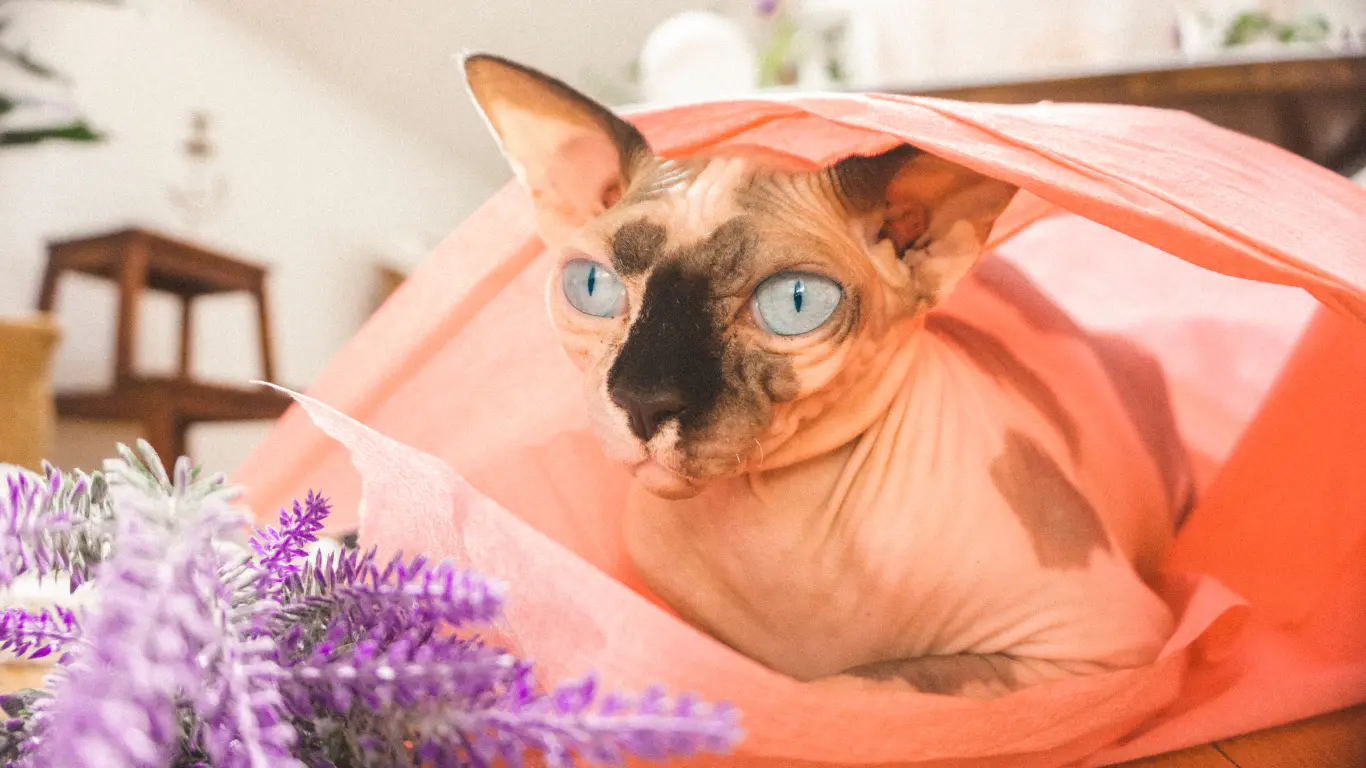
Creating the Perfect Home for a Sphynx Cat
Providing a safe and comfortable environment for your Sphynx cat is key to their well-being.
Temperature Control
Sphynx cats are highly sensitive to temperature changes due to their lack of fur. They prefer warmer environments and may need a cozy blanket or a heated cat bed during colder months.
Providing Entertainment and Enrichment
To keep your Sphynx cat mentally stimulated, provide a variety of toys and climbing structures. Puzzle feeders, interactive toys, and plenty of playtime will help keep them engaged and prevent boredom.
Breeding Considerations for Hairless Cats
If you’re considering breeding Hairless cats, it’s important to understand the responsibilities involved.
Ethical Breeding Practices
This Unique Breed requires careful consideration of their genetic health. Prospective breeders should conduct thorough genetic testing to avoid passing on hereditary conditions. Ethical breeders prioritize the health and well-being of their cats over producing kittens for profit.
What to Expect from a Sphynx Litter
Sphynx kittens are born with a fine layer of fuzz, which typically disappears as they mature. Breeding Sphynx cats can be challenging, and it’s essential to be prepared for the time, effort, and resources required to raise healthy kittens.
What to Know Before Adopting a Sphynx Cat
Adopting a Sphynx Cat is a significant commitment, and it’s important to be fully informed before making the decision.
Finding a Reputable Breeder
When looking for a Sphynx breeder, it’s important to ask about the health of the parents, the breeder’s practices, and their experience with the breed. A reputable breeder will be transparent about their practices and provide health guarantees for their kittens.
Adopting from a Rescue
If you prefer to adopt rather than purchase, there are Sphynx Breeder available through rescues and shelters. Adopting an older cat can be rewarding, as they are often less demanding than kittens and may already be trained.
The Financial Commitment of Owning a Hairless Cat
Owning a Hairless cat involves ongoing expenses that potential owners should consider.
Initial Costs
Purchasing a Sphynx kitten from a reputable breeder can be expensive, often ranging from $1,500 to $3,000 or more. In addition, you’ll need to budget for initial setup costs, such as bedding, toys, and feeding supplies.
Ongoing Expenses
Sphynx kitten require a high-quality diet, regular grooming supplies, and frequent veterinary care. It’s also wise to set aside funds for unexpected medical expenses, as the breed is prone to certain health issues.
Are Sphynx Cats Hypoallergenic?
A common misconception is that Sphynx cats are hypoallergenic. While they may produce fewer allergens due to their lack of fur, they still produce dander, which can trigger allergies in sensitive individuals.
Understanding Allergies to Cats
Cat allergies are typically caused by a protein found in saliva, skin oils, and urine, not just fur. Sphynx produce this protein, so they are not truly hypoallergenic, though some people with mild allergies may find them more tolerable.
Managing Allergies in a Sphynx Cat Household
To minimize allergens, it’s important to keep your Sphynx cat clean, regularly wash bedding, and use air purifiers to reduce dander in your home. Consulting with an allergist can also provide strategies for managing cat allergies effectively.
Interesting Facts About Sphynx Cats
Sphynx cats are full of surprises, with a range of unique traits and behaviors.
Famous Sphynx Cats in Pop Culture
Sphynx cats have appeared in various movies, TV shows, and even as internet sensations. Some notable examples include Mr. Wigglesworth from the “Austin Powers” movies and the Instagram-famous cat, “Naked Cuddles.”
Unusual Behaviors and Traits
Sphynx cats are known for their love of warmth and may curl up under blankets or sit on heaters to stay cozy. They are also vocal and expressive, often using a wide range of sounds to communicate with their owners.
Frequently Asked Questions
Do Sphynx cats get cold easily?
Yes, due to their lack of fur, Sphynx cats are more sensitive to cold temperatures and may need extra warmth in cooler climates.
Are Sphynx cats good with children?
Sphynx cats are generally affectionate and get along well with children, making them great family pets.
How long do Sphynx cats live?
With proper care, Sphynx cats can live 12 to 15 years, although some may live longer.
What should I look for in a Sphynx breeder?
Look for breeders who prioritize health, provide thorough genetic testing, and are transparent about their breeding practices.
Embracing the Unique Charm of Sphynx Cats
Sphynx cats are more than just a hairless breed—they are affectionate, intelligent, and full of personality. Whether you’re drawn to their unique appearance or their loving nature, owning a Sphynx can be a rewarding experience. With proper care and attention, they can make wonderful companions, bringing warmth and joy to any home.

